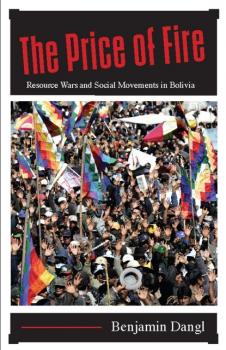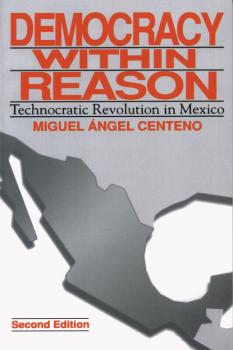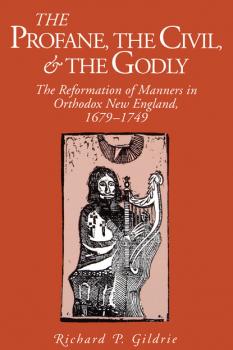ТОП просматриваемых книг сайта:
Историческая литература
Различные книги в жанре Историческая литература, доступные для чтения и скачиванияАннотация
New social movements have emerged in Bolivia over the “price of fire”—access to basic elements of survival like water, gas, land, coca, employment, and other resources. Though these movements helped pave the way to the presidency for indigenous coca-grower Evo Morales in 2005, they have made it clear that their fight for self-determination doesn’t end at the ballot box. From the first moments of Spanish colonization to today’s headlines, The Price of Fire offers a gripping account of clashes in Bolivia between corporate and people’s power, contextualizing them regionally, culturally, and historically. Benjamin Dangl has worked as an independent journalist throughout Latin America, writing for publications such as Z Magazine, The Nation, and The Progressive. He is the editor of TowardFreedom.com, a progressive perspective on world events, and UpsideDownWorld.org, an online magazine covering activism and politics in Latin America. Benjamin won a 2007 Project Censored Award for his coverage of US military operations in Paraguay. “Price of Fire is not yet another bleak ‘tell-all’ account of globalization, its pages are filled with stories of resistance, struggle and, above all, hope.”—Teo Ballvé, editor of the NACLA Report on the Americas and co-editor of Dispatches from Latin America “Ben Dangl takes the reader on an unforgettable and inspiring journey through Bolivia and neighboring countries, providing a window on the revolutionary struggles of the poor and dispossessed, and particularly on the resurgence of indigenous resistance and leadership.”—Roxanne Dunbar-Ortiz, author of Blood on the Border: A Memoir of the Contra War “Most Americans know nothing of Bolivia, an ignorance that only plays into the hands of empire. Ben Dangl’s book is both informative and inspiring, a cure for the apathy that grows from that ignorance. A must-read for those already interested in solidarity with Latin America and indigenous people.”—Tom Hayden, author of The Zapatista Reader and Street Wars “Ben Dangl has found himself under the skin of the Bolivian freedom struggle: he accurately represents its constraints, its opportunities, and its hopes.”—Vijay Prashad, author of The Darker Nations: A People’s History of the Third World “With great empathy and lucid prose, Dangl captures the exemplary courage that has put Latin America in the vanguard of the new internationalism and has made it one of the few bright spots on an otherwise dismal global landscape.”—Greg Grandin, author of Empire’s Workshop "Price of Fire by Ben Dangl informs, outrages, and builds hope. People’s movements for societal betterment in South America are an inspiration for human rights activists worldwide and Dangl gives us a full serving of encouragement and hope. He documents how historical imperialism, dominated my US corporate/government capital interests, is being successfully challenged by indigenous activists. Price of Fire is the story of cultural resistance from the street to international geo-political alliances. I highly recommend this book for working people, students, and radical democrats to hear the voices of South American people and their chronicle of grassroots democratic empowerment."—Peter Phillips, Professor Sociology, Sonoma State University, Director Project Censored, and co-editor with Dennis Loo of Impeach the President: The Case Against Bush and Cheney
Аннотация
During the 1980s the Mexican regime faced a series of economic, social, and political disasters that led many to question its survival. Yet by 1992 the economy was again growing, with inflation under control and the confidence of international investors restored. Mexico was now touted as an example for regimes in Eastern Europe to emulate. How did Carlos Salinas and his team of technocrats manage to gain political power sufficient to impose their economic model? How did they sustain their revolution from above despite the hardships these changes brought for many Mexicans? How did they stage their remarkable political comeback and create their “democracy within reason”? Why did Salinas succeed in keeping control of his revolution while Mikhail Gorbachev failed to do so in his similar effort at radical reform? Miguel Centeno addresses these questions by analyzing three critical developments in the Mexican state: the centralization of power within the bureaucracy; the rise of a new generation of technocrats and their use of a complex system of political networks; and the dominance of a neoliberal ideology and technocratic vision that guided policy decisions and limited democratic participation. In his conclusion the author proposes some alternative scenarios for Mexico’s future, including the role of NAFTA, and suggests lessons for the study of regimes undertaking similar transitions. Of obvious interest to students of contemporary Mexico and Latin America, the book will also be very useful for those analyzing the transition to the market in other countries, the role of knowledge in public policy, and the nature of the modern state in general.
Аннотация
No country has worked harder to coerce others to adopt liberal institutions than the United States. This book examines the promotion of democracy during U.S. military interventions in the twentieth century, showing it to be one of the central ways in which the United States attempts to reconcile the potential contradictions involved in being a liberal great power. Examining interventions from the Spanish-American War through recent actions in Bosnia, Mark Peceny shows how the United States has encouraged the institution of free elections and other liberal reforms—often at the point of bayonets. Peceny applies statistical analysis to ninety-three cases of intervention and presents six case studies: Cuba and the Philippines after the Spanish-American War, Vietnam during the Kennedy administration, El Salvador during Reagan's first term, and Clinton's interventions in Haiti and Bosnia. By forging a synthesis of realist and domestic liberal approaches, Peceny illuminates the roles that both security concerns and liberal values play in the formulation and implementation of foreign policy. He shows how presidents often initially choose proliberalization policies to serve U.S. security interests and how Congress exerts pressure when presidents fail to take the initiative. Under these circumstances, he shows, presidents use the promotion of democracy to build domestic political consensus and to legitimize interventions. Although the United States has failed to promote democracy in most interventions, Peceny demonstrates that it has often had a profound and positive impact on the democratization of target states. His study offers new insight into the relationship between American power, the promotion of democracy, and prospects for the liberal peace in the decades to come.
Аннотация
Medieval Toledo is famous as a center of Arabic learning and as a home to sizable Jewish, Muslim, and Christian communities. Yet its cathedral—one of the largest, richest, and best preserved in all of Europe—is little known outside Spain. In Toledo Cathedral , Tom Nickson provides the first in-depth analysis of the cathedral’s art and architecture. Focusing on the early thirteenth to the late fourteenth centuries, he examines over two hundred years of change and consolidation, tracing the growth of the cathedral in the city as well as the evolution of sacred places within the cathedral itself. He goes on to consider this substantial monument in terms of its location in Toledo, Spain’s most cosmopolitan city in the medieval period. Nickson also addresses the importance and symbolic significance of Toledo’s cathedral to the city and the art and architecture of the medieval Iberian Peninsula, showing how it fits in with broader narratives of change in the arts, culture, and ideology of the late medieval period in Spain and in Mediterranean Europe as a whole.
Аннотация
The Gaelic Revival has long fascinated scholars of political history, nationalism, literature, and theater history, yet studies of the period have neglected a significant dimension of Ireland's evolution into nationhood: the cultural crusades mounted by those who believed in the centrality of the Irish language to the emergent Irish state. This book attempts to remedy that deficiency and to present the lively debates within the language movement in their full complexity, citing documents such as editorials, columns, speeches, letters, and literary works that were influential at the time but all too often were published only in Irish or were difficult to access. Cautiously employing the terms "nativist" and "progressive" for the turnings inward and toward the European continent manifested in different authors, this study examines the strengths and weaknesses of contrasting positions on the major issues confronting the language movement. Moving from the early collecting or retelling of folklore through the search for heroes in early Irish history to the reworking of ancient Irish literary materials by retelling it in modern vernacular Irish, O'Leary addresses the many debates and questions concerning Irish writing of the period. His study is a model for inquiries into the kind of linguistic-literary movement that arises during intense nationalism.
Аннотация
The Rise and Fall of Democracy in Early America describes and explores the emergence of a directly democratic political culture in America, the Federalists' theoretical campaign against that culture, and the legacy of the struggle over democracy for politics today. The Rise and Fall of Democracy in Early America traces the rise of democracy in America beginning with the Puritans of New England; the radicalization during the eighteenth century of Puritan notions of community, autonomy, and participation; and the Antifederalist attempt to preserve a democratic political culture in the face of Federalist efforts to centralize power and distance it from the people by the passage of the 1787 Constitution. Despite its historical concerns, this book is not a history of institutions or a history of ideas. It is a work of political theory that explores certain early American texts and debates, and discusses the theoretical questions raised by those texts and debates, emphasizing those issues most relevant to democratic thought in our own time. Among the many insights into our democratic heritage that Joshua Miller affords us in his discussion of the Puritan theory of membership and the Antifederalist theory of autonomous communities is the hitherto obscured affinity between democracy and conservatism. Whereas many treatments of early American political thought make the debate over the ratification of the Constitution appear dry and abstract, this book shows the clash of political values and ideals that were at the heart of the struggle. It illustrates how the Federalists employed a democratic-sounding vocabulary to cloak their centralizing, elitist designs. Miller introduces readers to a political theory of direct democracy that is presented as an alternative to Marxism, liberalism, and mainstream conservatism. This new democratic theory based on an early American political tradition should serve as a stimulus for rethinking the directions we are taking in politics today.
Аннотация
The Crossroads of American History and Literature collects two decades' worth of the best-known essays of Philip F. Gura. Beginning with a definitive overview of studies of colonial literature, Gura ranges through such subjects in colonial American history as the intellectual life of the Connecticut River Valley, Cotton Mather's understanding of political leadership, and the religious upheavals of the Great Awakening. In the nineteenth century, he visits such varied topics as the history of print culture in rural communities, the philological interests of the Transcendentalist Elizabeth Peabody, the craft and business of the early Amerian music trades, and Thoreau's interest in exploration literature and in the Native American. Displaying remarkable sophistication in a variety of fields that, taken together, constitute the heart of American Studies, this collection illustrates the complexity of American cultural history.
The Profane, the Civil, and the Godly - Richard P. Gildrie
Kenneth Scott Latourette Prize in Religion and Modern LiteratureАннотация
In this prize-winning study of the sacred and profane in Puritan New England, Richard P. Gildrie seeks to understand not only the fears, aspirations, and moral theories of Puritan reformers but also the customs and attitudes they sought to transform. Topics include tavern mores, family order, witchcraft, criminality, and popular religion. Gildrie demonstrates that Puritanism succeeded in shaping regional society and culture for generations not because New Englanders knew no alternatives but because it offered a compelling vision of human dignity capable of incorporating and adapting crucial elements of popular mores and aspirations.
Информация о книге
Автор произведения Richard P. Gildrie
Серия Kenneth Scott Latourette Prize in Religion and Modern Literature
Аннотация
For centuries the most revered poem in the Western literary canon, Vergil's Aeneid celebrates the Roman virtue of pietas . In the preface to his English translation of the poem, John Dryden attempts to explain all that this virtue includes: "Piety alone," he writes, "comprehends the whole Duty of Man towards the Gods, towards his Country, and towards his Relations." Dryden's definition belongs to a dialogue about meaning that reflects a history of contention over religious, political, and moral issues of enduring cultural significance. Because it is the site of antagonism between pagan and Christian, republican and imperialist, emperor and pope, Protestant and Catholic, pietas and its derivatives in the modern languages bring to literary works multiple contexts of ideological dispute. This book traces the history of the Vergilian ideal from classical Latin to neoclassical English literature. In the process of, it comparatively engages interpretation of a range of literary works diversely responsive to the Aeneid : from the histories and historical epics of the Silver Age, to the medieval mirrors for magistrates, to Renaissance adaptations of Aeneid 4 and 12, and finally to Dryden's complete translation.
Аннотация
First published in 1979, this volume offers students and teachers a unique view of American history prior to the Civil War. Distinguished historian David Brion Davis has chosen a diverse array of primary sources that show the actual concerns, hopes, fears, and understandings of ordinary antebellum Americans. He places these sources within a clear interpretive narrative that brings the documents to life and highlights themes that social and cultural historians have brought to our attention in recent years. Beginning with the family and the issue of socialization and influence, the units move on to struggles over access to wealth and power; the plight of "outsiders" in an "open" society; and ideals of progress, perfection, and mission. The reader of this volume hears a great diversity of voices but also grasps the unities that survived even the Civil War.










